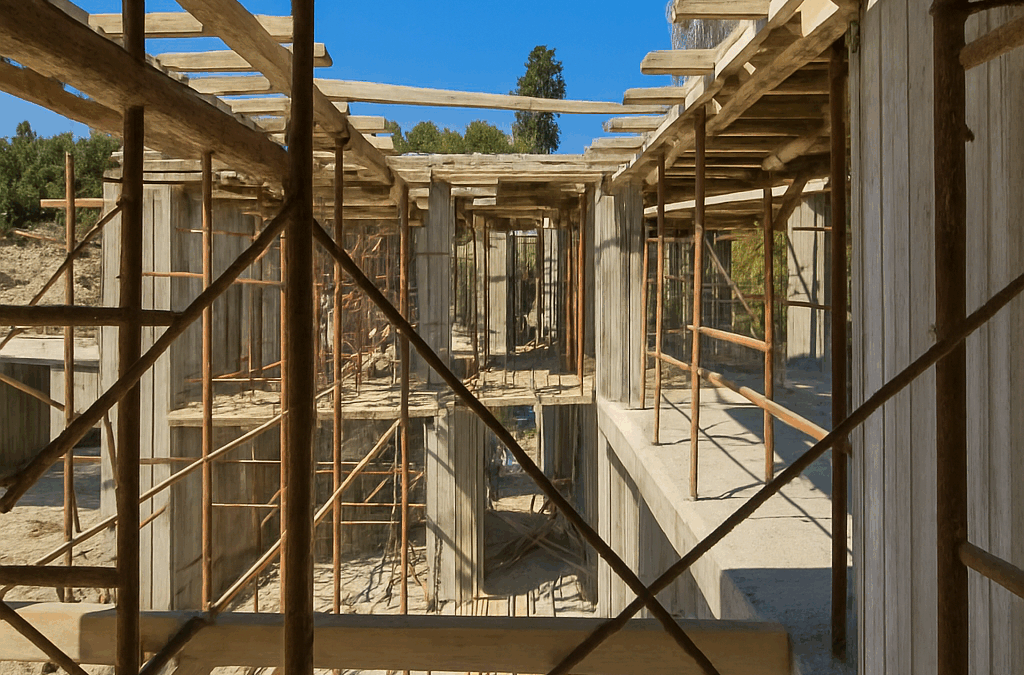Building in Greece – from design to completion
Building a home in Greece is a journey that begins with a vision.
The light, the sea and the natural rhythm of life invite you to create something of your own.
Yet a construction project abroad requires preparation, local knowledge and reliable guidance.
While the process differs from the Netherlands, the essence remains the same: clarity, trust and craftsmanship.
A successful build begins with understanding — of the land, the permits and the people involved.
Orientation and location
The first step is choosing the right location.
Do you prefer a sea view, olive grove surroundings or proximity to a village?
Each site has its own building rules and spatial boundaries.
Within residential zones, building sizes are usually more restricted,
while plots outside the zone offer greater freedom, provided they meet the legal size and accessibility criteria.
Every plot should be checked for ownership, road access, utilities and compliance with zoning plans.
A local surveyor and lawyer can confirm whether construction is permitted and under what conditions.
Design and permits
Once the land is secured, the design phase begins.
A Greek architect translates your vision into a plan that meets building regulations and respects the terrain.
Modern architecture often integrates natural materials, open sightlines and energy-efficient solutions.
To obtain the building permit, technical documents such as drawings, topographical maps and structural (static) calculations must be submitted.
These confirm that the structure complies with seismic and safety standards — essential in Greece.
Only after formal approval may construction start.
Construction and supervision
During execution, communication between owner, architect and contractor is key.
Greek contractors usually work with trusted local craftsmen,
while the architect supervises progress and verifies compliance with the permit and plans.
Depending on the size and terrain, a two-hundred-square-metre villa typically takes twelve to eighteen months to complete.
Agreements on payment stages, delivery and aftercare are best defined in advance,
with payments made per phase upon verified progress.
Legal due diligence
Even in new construction, legal precision remains crucial.
A lawyer ensures that the building is registered under the correct name,
that all permits and certificates are valid,
and that the completed property is added to the official Land Registry.
A complete and accurate documentation file avoids delays or unexpected costs at resale.
Finishing and furnishing
When the structure is finished, the most personal phase begins — turning the house into a home.
Many owners choose natural tones, micro-cement floors and handcrafted woodwork that reflect the Mediterranean landscape.
For rental purposes, practical materials and layout are key.
A tourist rental licence (EOT) is required before short-term rentals are allowed.
Local insurance and maintenance agreements ensure peace of mind when you are abroad.
From plan to reality
Building in Greece takes patience and trust,
but it rewards you with something unique — a home shaped by light, landscape and intention.
With the right preparation, local expertise and consistent oversight,
a design becomes reality and a dream finds its place.
Creating homes with meaning
© 2025 Voss Makelaardij

